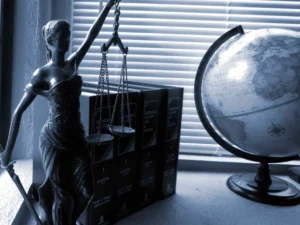3 FAQs About Filing a Premises Liability Claim in Florida

Whether visiting a friend at their apartment complex or grabbing groceries at the market, it’s reasonable to assume you won’t get hurt. Just because property owners have an obligation to keep their premises free of hazards, however, doesn’t mean they always do. From wet floors to loose railings to uneven stairs, there are dozens of dangers you might come across when running any given errand.
If you were reminded as much recently and sustained serious injuries because someone failed to maintain their property, you may be thinking about taking legal action. Chances are you’ve never filed a premises liability claim, though, so you’re not entirely sure what doing so entails.
To help you get started, here are the answers to some of the most frequently asked questions about proceeding in such a scenario:
1. How Do You Prove Liability for a Premises Liability Claim?
Before you can recover compensation for the damages you incur, you must present compelling evidence of liability. While the most valuable pieces of proof will come down to the facts of the case, there are a few kinds of evidence that almost always contribute to premises liability claims. Examples include:
- Incident reports,
- Eyewitness testimony,
- Surveillance footage,
- Maintenance logs,
- Standard operating procedures, and
- Photographs of the hazard that caused the accident.
2. What Kinds of Damages Can You Include in Your Premises Liability Claim?
Florida recognizes both economic and non-economic damages in premises liability actions. As long as you can prove you incurred them, you may account for the following losses when putting together your claim:
- Medical expenses,
- Property repairs,
- The cost of reasonable and necessary replacement services,
- Any home or vehicle modifications needed to accommodate long-term or permanent disabilities,
- Lost wages,
- Lost earning capacity,
- Emotional distress,
- Diminished quality of life, and
- Pain and suffering.
Florida also allows the spouses of injured parties to seek compensation for loss of consortium. This refers to the loss of affection, society, and services the marital relationship suffers as a result of the victim’s condition.
3. How Long Do I Have to File a Premises Liability Lawsuit?
If the insurance adjuster challenges your credibility, disputes liability, or is otherwise uncooperative, filing a formal lawsuit may be the only way to seek the funds you deserve. Should this end up being the route you’re forced to take, you must commence the proceedings before the statute of limitations has passed.
While Florida’s typical deadline for personal injury actions is four years, there are several exceptions that can shorten it considerably. There are also a few extenuating circumstances that can extend the deadline. As such, you should never assume you have plenty of time—or not enough time—to proceed without first consulting an attorney.
Discuss Your Case with a Premises Liability Attorney in West Palm Beach
At Weston & Pape, we’re proud to advocate for those who were seriously hurt through no fault of their own. If you sustained injuries on someone else’s property but think the accident could have been prevented, we’ll help you determine how best to proceed. Call 561-299-3999 or submit the Contact Form on our website to schedule a free initial consultation with a premises liability lawyer in West Palm Beach.

 Call Us Today
- It's Free
Call Us Today
- It's Free